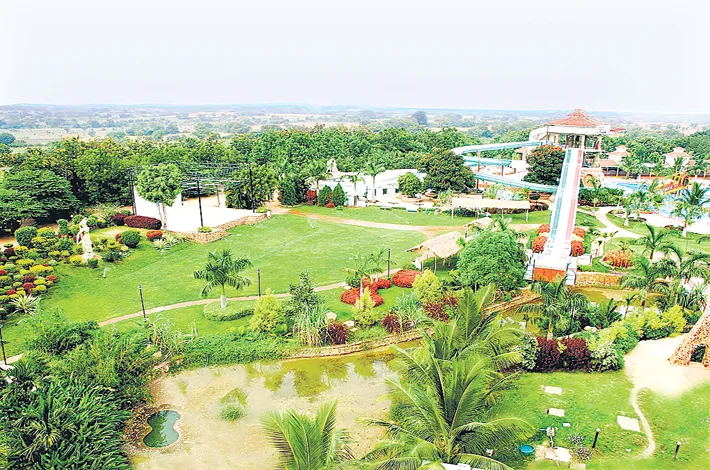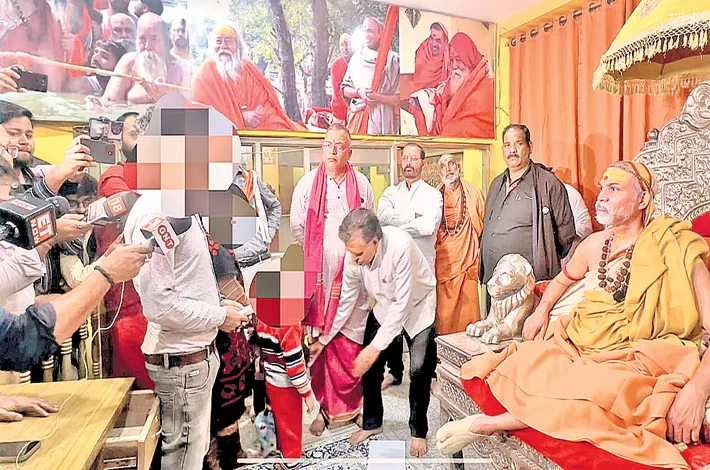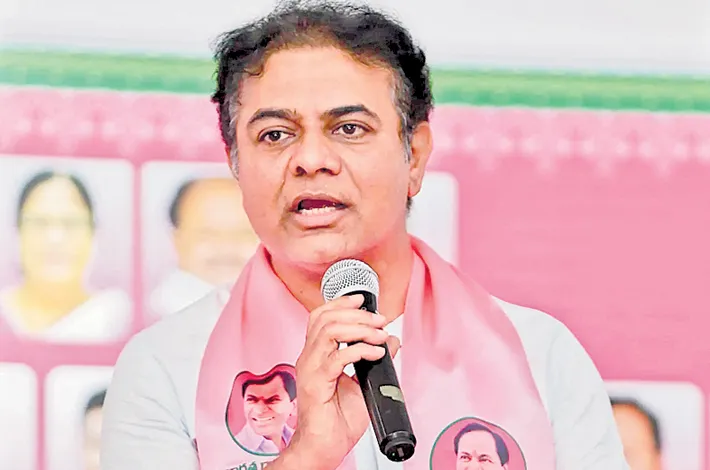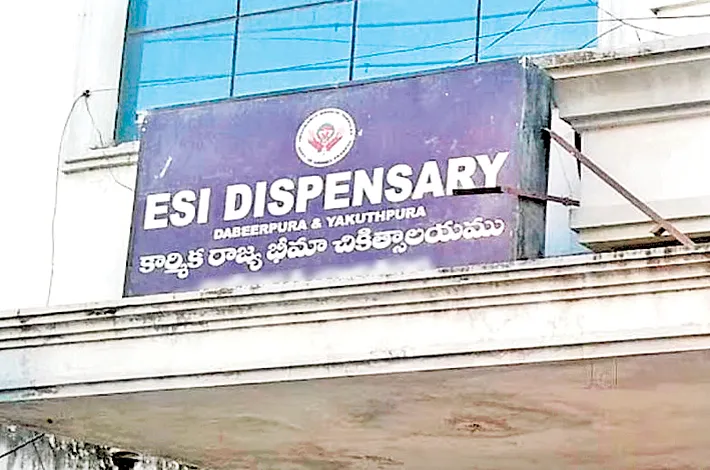Green architect of Pragati resorts
07-07-2025 12:00:00 AM

V. Gopichand
■ Beyond the plantations, Dr Rama Rao has also advised on building infrastructure that is environment-centric. The resort now includes:
■ Ayurvedic wellness centres that use herbs grown on-site
■ Meditation halls and yoga spaces nestled in green zones
■ Goat farms and cow shelters that contribute to organic manure production
■ Organic composting units for waste recycling
■ Playgrounds, sports courts, and swimming pools built around green belts
■ Special forest zones for spiritual events like Vanabhojanalu during Karthika Masam
Dr S V Rama Rao’s lifelong forest mission has transformed the landscape
At a time when rapid urbanization replaces green spaces with concrete, Dr. SV Rama Rao offers hope for India’s ecological future. At 80, he is an accomplished agricultural scientist and the visionary behind transforming Hyderabad’s Pragati Resorts into a model ecological habitat.
With over three decades dedicated to environmental preservation, afforestation, and botanical education, Dr. Rao embodies a steadfast commitment to restoring India’s plant heritage. His work has led to the development of one of the country’s most biodiverse constructed forests within a private resort—a living model attracting researchers, students, and environmentalists alike.
Dr. Rao’s academic journey is distinguished. A graduate of Bapatla Agricultural College, he specialized in entomology at Rajendranagar, Hyderabad, and earned his PhD from the Indian Agricultural Research Institute (IARI) in New Delhi. Furthering his expertise, he conducted post-doctoral research in the United States and worked at the International Potato Center in Peru for four years. Despite opportunities for an international career, he returned to India to focus on grassroots environmental work. Initially, he promoted social forests across rural Andhra Pradesh, aiming to boost local green cover.
In 1991, Dr. Rao met GBK Rao, founder of Pragati Resorts. What began as a leisure retreat evolved under his guidance into a fully integrated ecological habitat spread across hundreds of acres. It now hosts over 300 rare, medicinal, aromatic, spiritual, and endangered plant species. These are not merely ornamental; they are part of meticulously constructed forest zones mimicking natural ecosystems, selected for their botanical, ecological, and cultural significance.
Walking through Pragati’s herbal gardens resembles visiting a living plant museum. From Tulasi and Bilva to Ashwagandha and Noni, each plant serves a purpose and often safeguards species dwindling in wild landscapes. Visitors—be they tourists, schoolchildren, or researchers—are encouraged to touch, smell, and taste plants, learning about their scientific, traditional, medicinal, and spiritual roles. This immersive botanical education underscores the importance of native plant conservation.
Everyday at Pragati involves harvesting herbal leaves for teas with therapeutic and symbolic significance. The surrounding greenery, roaming peacocks, butterflies, and bees, reflect a thriving ecosystem. The forests are engineered for biodiversity, soil health, and microclimate regulation—estimations show increased humidity and reduced temperatures during summer, benefiting the local environment.
Recognized nationally, Pragati serves as a model for sustainable afforestation. Many environmental organizations and policymakers cite it as a scalable example of native biodiversity conservation and organic practices in eco-tourism and community initiatives. While Dr. Rao shuns publicity, his disciplined, scientific approach gains deep respect, and his team regards him simply as “Sir”—a teacher who plants and nurtures.
Today, even at 80, Dr. Rao continues to oversee planting, conduct guided tours, and enhance species diversity. His philosophy centers on discipline, humility, action, and a steadfast belief that practical effort and ecological consciousness are vital to India’s sustainable future.








